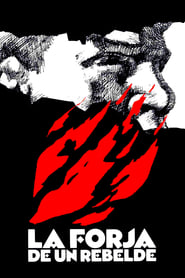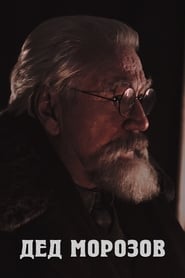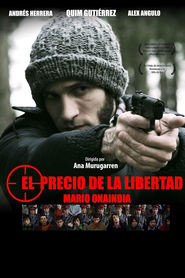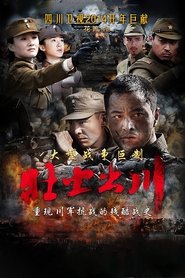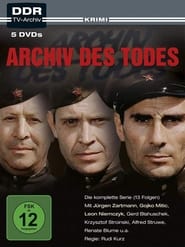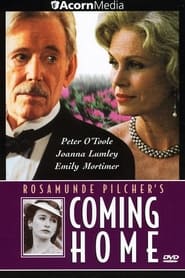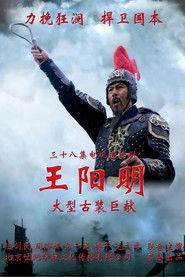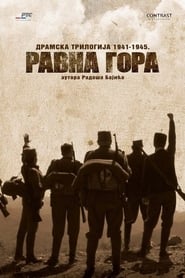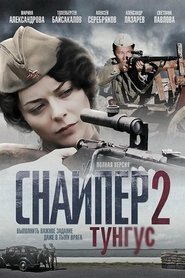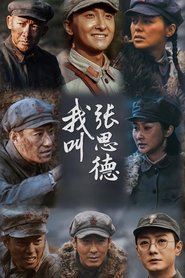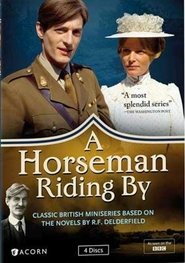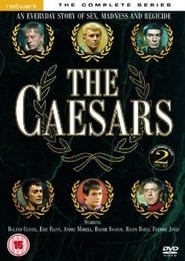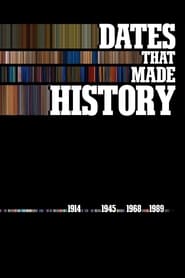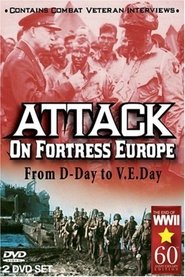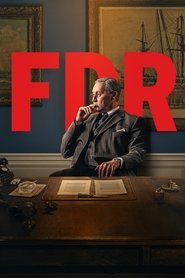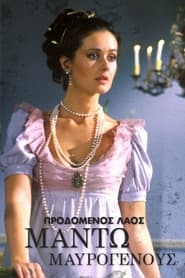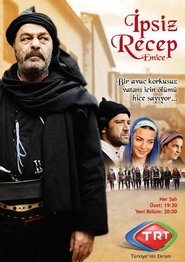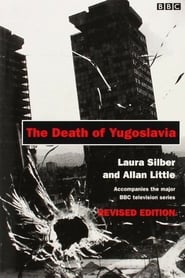Popular War Politics TV Series on Pantaflix - Page 54
-
La Forja de un Rebelde
1990
star 4.5An autobiographical account that is also the history of Spain during the dark years of the first half of the twentieth century. Spanish writer Arturo Barea (1897-1957) narrates his childhood in Madrid, his harsh experiences in Morocco during the Rif War and his political commitment to the Republican side during the Spanish Civil War. -
Morozov
2020
Morozov
2020
star 7.5Nikolay Morozov has been both a revolutionary and a terrorist in his long life. Sentenced to a lifetime of hard labour, he spent 30 years in a tsarist prison. His hair had long turned grey by the time the Second World War broke out, but when he realised his country needed him he volunteered for the army. Nikolay was 87 at the time. -
The Price of Freedom
2011
The Price of Freedom
2011
star 4.3Mario, a member of the terrorist group ETA during Franco's dictatorship, drastically changes the course of his life when, with democracy in place, the organization decides to continue killing. -
Warrior Gone
2013
-
Archiv des Todes
1980
Archiv des Todes
1980
star 8.5Archiv des Todes is a 1980 13-part television series German war television film series set during World War II. -
Coming Home
1998
Coming Home
1998
Alone and without her parents, Judith Dunbar spends her school days in a boarding school. When her friend Loveday invites her to Gut Nancherrow one day, it is love at first sight for Judith. The elegant lady of the house Diana, her husband Colonel Cary-Lewis and Loveday's siblings Edward and Athena immediately fall in love with her and treat her like family. But the outbreak of the Second World War put an end to the idyll on Nancherrow overnight. A long, thorny road lies ahead of Judith until she finally finds happiness in a family of her own... -
红箭
2014
红箭
2014
-
Brave Untold Danger
2010
Brave Untold Danger
2010
-
王阳明
2012
-
Flat Hill
2013
Flat Hill
2013
star 6.3Ravna Gora tells story of events after April War 1941. Serbia with accent on the Chetnic-Partisan conflict, at the beginning of World War II -
Snaiper 2 Tungus
2012
Snaiper 2 Tungus
2012
-
我叫张思德
2025
我叫张思德
2025
star 5In 1933, young villager Zhang Side joins the Red Army and rises through the ranks through courage, loyalty, and sacrifice. From delivering vital intelligence to protecting Chairman Mao, his unwavering dedication to the people defines his legacy. -
A Horseman Riding By
1978
A Horseman Riding By
1978
star 5A Horseman Riding By is a 13-part BBC television serial produced by Ken Riddington, and adapted by Arden Winch, Alexander Baron, and John Wiles from R.F. Delderfield's 1966-68 historical novel series of the same name. Having been invalided out of the Boer War, Paul Craddock buys Shallowford, a manor house and estate in Devon, with money from his late father's scrapyard business. He soon becomes a much-respected 'Squire' determined to treat all his tenant farmers fairly, unlike his predecessor. -
The Caesars
1968
The Caesars
1968
star 7.8The Caesars is a British television series produced by Granada Television for the ITV network in 1968. Made in black-and-white and written and produced by Philip Mackie, it covered similar dramatic territory to the later BBC adaptation of I, Claudius, dealing with the lives of the early emperors of Ancient Rome, but differed in its less sensationalist depictions of historical characters and their motives. -
Dates That Made History
2018
star 8.6Historian Patrick Boucheron revisits the most important dates in history through the prisms of memory and collective imagination. -
Attack on Fortress Europe: From D-Day to V.E. Day
2003
Hitler had proclaimed that Nazi conquered Europe was an impenetrable fortress. On the 6th of June 1944, the Allies launched the largest combined land, air and sea operation ever. This invasion, designed to begin the liberation of Europe, would forever be known as D-Day. The years leading up to 1944 had seen total domination of Europe by Nazi Germany. Despite the entry of America into WWII, strategic bombing, the invasions of North Africa and Italy, Germany remained in control and was able to strength its coastal defenses, The Atlantic Wall, in preparation for the inevitable Allied invasion. Operation Overlord was the Allied plan to defeat those defenses and open a Western Front. The hard lessons learned at Anzio, Dieppe and Salerno were about to be brought into focus with the greatest invasion the world had ever seen. But how had the Allies come to this point? Who were the personalities and what compromises were made to forge this great alliance? -
FDR
2023
FDR
2023
star 6.8The three-part miniseries chronicles the life of Franklin D. Roosevelt, the thirty-second President of the United States. -
Manto Mavrogenous
1983
-
İpsiz Recep
2008
İpsiz Recep
2008
-
The Death of Yugoslavia
1995
star 7.2The Death of Yugoslavia is a BAFTA-award winning BBC documentary series first broadcast in 1995. It covers the collapse of the former Yugoslavia. It is notable in its combination of never-before-seen archive footage interspersed with interviews of most of the main players in the conflict, including Slobodan Milošević, the then President of Serbia. Norma Percy won the 1996 BAFTA TV Award for 'Best Factual Series' for the documentary. However, it has been argued that it presents a potentially slightly biased point-of-view; for instance during the trial of Milošević before the ICTY in The Hague, Judge Bonomy called the nature of much of the commentary "tendentious" (partisan).
 Netflix
Netflix
 Amazon Prime Video
Amazon Prime Video
 Apple iTunes
Apple iTunes
 Apple TV Plus
Apple TV Plus
 Disney Plus
Disney Plus
 Google Play Movies
Google Play Movies
 Paramount Plus
Paramount Plus
 Hulu
Hulu
 HBO Max
HBO Max
 YouTube
YouTube
 fuboTV
fuboTV
 Peacock
Peacock
 Peacock Premium
Peacock Premium
 Amazon Video
Amazon Video
 The Roku Channel
The Roku Channel
 AMC+
AMC+
 Kocowa
Kocowa
 Hoopla
Hoopla
 The CW
The CW
 Vudu
Vudu
 Starz
Starz
 Showtime
Showtime
 PBS
PBS
 Pantaflix
Pantaflix
 FXNow
FXNow
 Tubi TV
Tubi TV
 Kanopy
Kanopy
 Comedy Central
Comedy Central
 Crunchyroll
Crunchyroll
 Microsoft Store
Microsoft Store
 Redbox
Redbox
 Sun Nxt
Sun Nxt
 ABC
ABC
 DIRECTV
DIRECTV
 Crackle
Crackle
 Fandor
Fandor
 Plex
Plex
